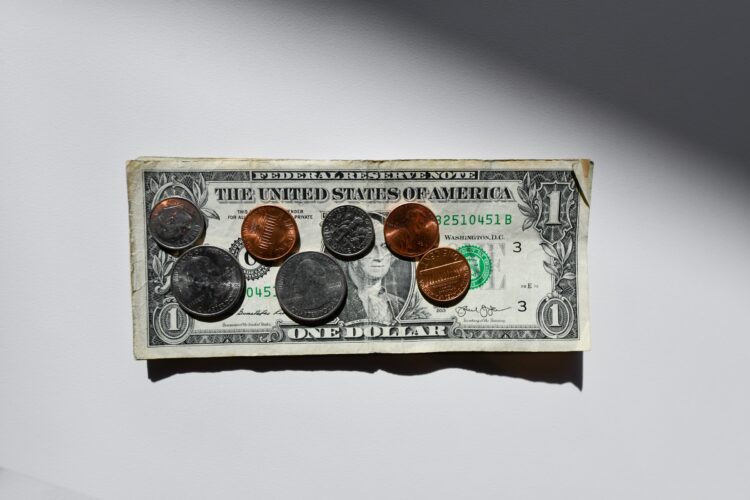Whenever we lose someone close to us, the grief and pain can be immense. If that someone is your father or mother, the situation can become overwhelming.
When it comes to the finances of the deceased, a lot has already been written about inheriting property, bank accounts, and other assets. However, one area that has not been adequately covered is about inheriting debts.
If data and statistics are to be believed, one in three Americans is likely to die in debt. This means that the chances of someone inheriting debt may be more than you might think.
In this resource article, we will try to answer some of the major issues and questions surrounding inheriting debt. In particular, we will focus on-
- The nature and meaning of Inheritance Debts
- The various types and kinds of Inheritance Debts
- Important things to be done when you inherit debt
- The Final Analysis
If you are someone that has unfortunately lost a loved one and has inherited debts, you should read this article till the end.
Page Contents
Inheriting Debts: Meaning and Definition

img source: unsplash.com
There are a lot of misconceptions when it comes to inheriting debt. In very simple words, inheriting debts being financially obligated to pay the loans, credits, and other financial commitments that had been made by your immediate family members.
Many people believe that the debt of someone automatically is written off once they die. While this is true in some respects, in others not so much. Clearing outstanding debts of a dead human being is taken care of by selling their estates, assets and clearing bank accounts.
This means that if you are a successor looking to inherit the assets, you might not have great luck. The lenders would be getting a legal notice to allow them to have first access to the assets.
Financial and legal experts point out that you will be inheriting debt in the following situations:
- If the assets of the dead individual are not enough to cover all the outstanding financial obligations of the lenders. The difference amount of the debt is inherited.
- If you have been a co-signatory or own a joint account through which the loan was applied, then you have to fulfill the debt payments.
- If you have signed on the medical bills of someone who was admitted to the hospital and has passed away during treatment, you will be responsible for payments.
What are the Different Types of Debts that can be Inherited?

img source: unsplash.com
According to financial and legal experts, the following five kinds of debts can be inherited-
1. Joint Application Debts
If you have been a co-applicant or signatory on a joint bank account, loan application, or credit card, then you stand to inherit the outstanding debt. Banks will force you to settle the debts and try as many means as possible. However, you should get in touch with the CFPB to understand exactly if and when you can be protected as an authorized user.
2. Community Property Debts
If you own community property with your spouse or parents, you will be forced to dispose of the assets and settle the debts. This is not true for all the states but is in operation in some states like Arizona, Texas, New Mexico, and Washington. This is something that you need legal assistance for as there is usually a lot of paperwork involved.
3. Home Loan Debts

img source: unsplash.com
If you are living in a home that has been bought by taking finance from banks, then you can inherit the home loan payments. This is a simple and clear-cut process. If you wish to keep the home, you need to get the loan transferred to your name. If you are unable to, the lending institution will auction off the property, take back its amount and give you the rest.
4. Medical Payment Debts
In a lot of situations, many individuals during old age, breathe their last in medical institutions. To recover the payments, the property of the deceased can be adjusted. If the same is not enough and you are a cosignatory on the bills, you will be responsible for making the payments. This is something a lot of people end up with inadvertently as a mistake.
5. Credit Card Debts
This is something that you will inherit only if you have been a co-applicant on the credit card. If the card was an individual one, a lender is likely to write it off as long as the outstanding is not too great. If it is, the property might be sold off to recover the amount. You do not have to worry as long as you are not a co-applicant or share a joint bank account.
What to do if you have Inherited Debts: Experts Answer

img source: unsplash.com
Many people get overwhelmed the moment they hear they have inherited debts. This is natural. However, there are many things that you can do to easily overcome this scenario.
Firstly, you need to hire a legal expert that can help you understand what is possible in the form of legal remedies. Banks might try to strongarm you even when they do not have a justified case. However, working with a lawyer can help you understand if there is a way out.
Secondly, if you are someone that has inherited debts, you need to come to terms with the same. Rather than work out an arrangement of monthly payments, you should look to clear the outstanding at one go. This will give you peace of mind and allow you to focus on the future.
For personal loans to pay off your inheritance debts you can contact https://ukcredit.sg/.
Thirdly, if you feel that debt collectors are breaking the law or interfering with your life in any way, you have every right to contact governmental authorities. The FTC or the Federal Trade Commission and the local police station need to be informed about the illegal actions.
The Bottom Line
Many Americans are likely to inherit debt. This is something that you cannot control. It is essential that you try to make your elders understand financial issues carefully. If you feel this is something that might happen, take preventive steps and actions. If you wish to know more about inheriting debt, let us know in the comments section below.





